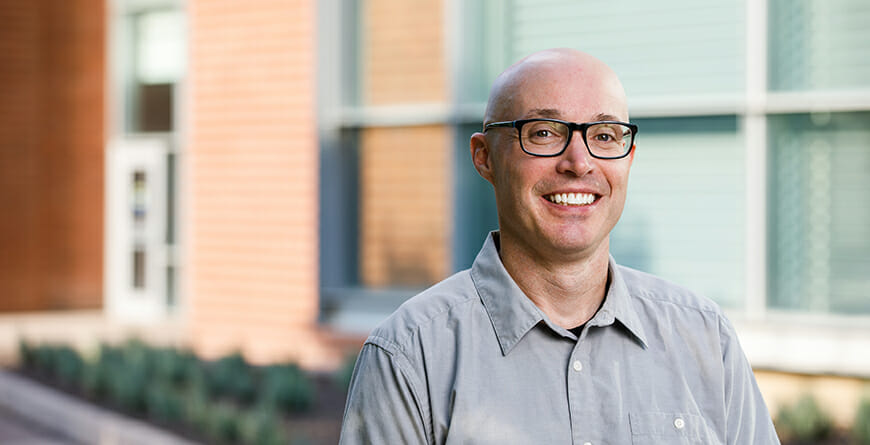
Five outstanding Arizona State University faculty spanning the physical sciences, psychological sciences and science policy have been named as Fellows of the American Association for the Advancement of Science (AAAS).
ASU’s Leah Gerber, Andrew Maynard, Steven Neuberg, Ying-Cheng Lai and John McCutcheon are being honored for their career contributions to science, innovation or socially distinguished efforts to advance science and its applications.
The AAAS, publisher of the journal Science, is the world’s largest general scientific society. Election as a fellow is an honor bestowed upon AAAS members by their peers. Within that general framework, each awardee is honored for contributions to a specific field.
The five new ASU faculty members' election this year brings the total number of AAAS Fellows affiliated with ASU to 86. There are 489 newly elected AAAS Fellows this year.
Read on to learn about the ASU AAAS 2020 Fellows’ individual scientific achievements.
John McCutcheon
For exceptional contributions to our understanding of the genetic underpinnings of symbiosis, in particular, several-partner systems with conflict.
McCutcheon, associate director of the ASU Biodesign Institute’s Center for Mechanisms of Evolution and professor in the School of Life Sciences, studies how and why cellular symbioses form, how they are maintained and why they sometimes break down. He studies bacteria (and sometimes fungi) that form long-term infections in host cells, mostly within insects, through the use of cell biology, genetics, genomics, microscopy, molecular biology, molecular evolution, biochemistry and field biology.
“No organism exists alone,” McCutcheon said. “Bacteria, no matter where they live, must cope with the presence of huge numbers of other bacteria competing for the same space. Animals are coated, both inside and out, with complex communities of microorganisms. All of these interactions are interesting, but we focus on a special type of symbiosis, where one cell takes up long-term residence inside another cell. We study cell-in-cell interactions because they are key to the origin of plant and animal cells. Our insect models have taught us fundamental lessons about how cells work in general, and promise to provide important new information about how bacteria become pathogens, or not.”
A virtual induction ceremony for the 489 newly elected 2020 AAAS Fellows will take place on Feb. 13, 2021, the Saturday following the AAAS annual meeting. The honorees will receive official certificates and rosette pins in gold and blue, colors symbolizing science and engineering.
Eliza Robinson, Rob Ewing, Robin Tricoles and Joe Caspermeyer contributed to this article.
See the original story, with more information about all of the new ASU faculty members elected as AAAS Fellows.